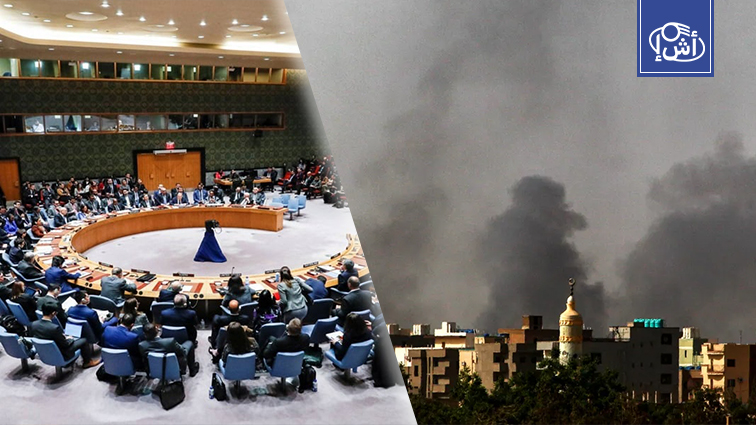The UN Security Council warned in an emergency session held in New York that the situation in Sudan is heading towards a deadlock and a protracted conflict that leads to the collapse of Sudan and its repercussions affect the region as a whole.
Speakers at the session blamed army commander Abdel Fattah al-Burhan and Rapid Support Forces commander Mohamed Hamdan Daglo (Hemedti) for the deterioration of the situation in Sudan, stressing pressure on the warring parties to negotiate.
“One year ago, two rival generals sent their armies into battle and put Sudan on the path of death, destruction and devastation that continues to this day,” said U.S. Representative Ambassador Robert Wood, calling on both sides to immediately stop the war and return to the negotiating table without delay, citing plans to resume talks in Jeddah in early May.
For his part, African Union representative Mohamed Ibn Chambas, noted that the war has already set Sudan back several decades, adding that “rebuilding Sudan to its pre-war state will take more than a generation.”
Rosemary DiCarlo, the UN Under-Secretary-General for Political and Peacebuilding Affairs, described Sudan’s crisis as “a crisis of mythical proportions, entirely man-made,” stressing that both sides have failed to protect civilians.
In a related context, the Emirates News Agency (WAM) said that UAE President Sheikh Mohammed bin Zayed and his French counterpart Emmanuel Macron stressed during a phone call the importance of a ceasefire in Sudan and a return to the political track.
The two sides stressed the importance of ending the crisis “in a way that ensures security and stability for the Sudanese people and meets their aspirations for development and prosperity.”
In the context of the situation on the ground, sources in the Sudan Liberation Army (SLM) and the Forces for the Declaration of Freedom and Change (FFCF) reported that forces including the Justice and Equality Movement (JEM), the Sudan Liberation Army (SLA), regular forces and allied groups of the joint force and the Sudanese army are close to retaking the al-Jili oil refinery, north of the city of Bahri, which produces about 70% of Sudan’s energy needs.
For days, fierce fighting has been raging between the Sudanese army and allied armed movements on the one hand and the Rapid Support Forces on the other in the central state of Gezira on the other, which was seized by the Rapid Support Forces last December after days of fierce clashes with the army.
In one year, the war in Sudan has killed thousands of people, pushed the country to the brink of famine, destroyed infrastructure and displaced more than 8.5 million people, according to the United Nations.
The France..The Last Colonial Currency in Africa
